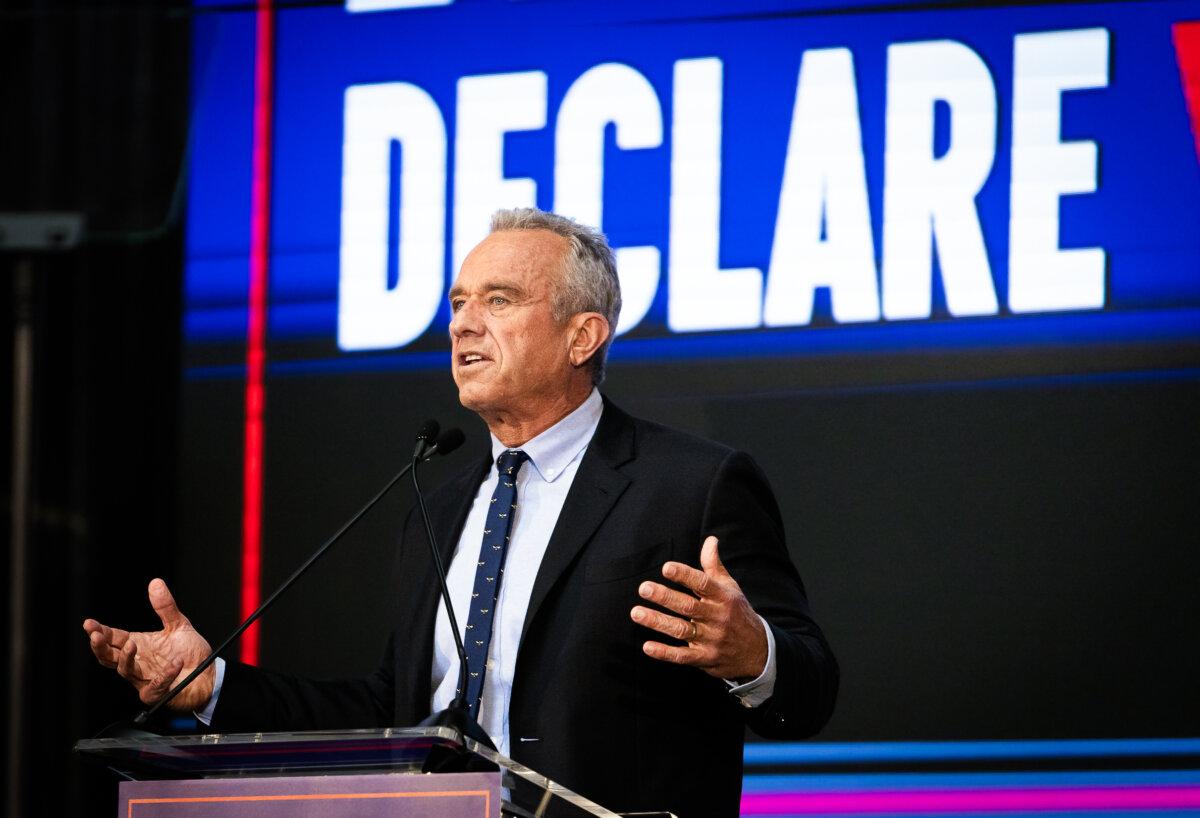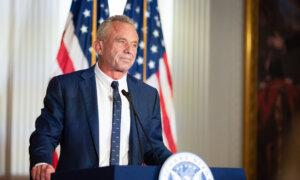The panel voted to approve the Constitution Party’s spot on the November general election ballot but delayed action on We the People and Justice for All.
The ballot access status of parties headlined by independent presidential candidates Robert F. Kennedy Jr. and Cornel West remains undetermined after a July 9 meeting of the North Carolina State Board of Elections (NCSBE).
By unanimous vote, the board officially certified the Constitution Party to run candidates in the state’s November general elections, but it delayed action for an unspecified period of time on Mr. Kennedy’s We the People party and Mr. West’s Justice for All.
The decision marked the second time in less than a month that the panel did not vote to add We the People and Justice for All to the state general election ballot.
The July 9 decision allows Mr. Terry’s name to appear on North Carolina’s general election ballot in November, but the fate of Mr. Kennedy and Mr. West is still uncertain.
North Carolina election officials have confirmed that We the People surpassed the minimum of 13,865 valid signatures required to register as a political party for the 2024 general election.
Democrats on the elections board have cited concerns about how the party represented itself while circulating petitions and gathering signatures.
The board’s chairman, Alan Hirsch, a Democrat, said on June 26 that the three parties requesting certification had likely met the signatures requirements. The delay was intended to give the board enough time to perform due diligence in verifying the petitions.
On July 9, Mr. Hirsch reiterated that he wanted to give staff members enough time to complete their investigations into the signatures submitted by We the People and Justice for All.
In a statement to The Epoch Times, NCSBE spokesperson Patrick Gannon said that board staff directed by board members continue to verify whether We the People and Justice for All “complied with the statutory requirement for prospective parties to communicate the purpose and intent of the new parties to petition signers.”
The board will “meet again soon” to decide whether to recognize the parties, Mr. Gannon added, noting that “there is still time” for the groups to get their candidates on the North Carolina general election ballot if they are certified.
The two Republicans on the panel voted in favor of the parties on June 26.
“I’m just completely at a loss for what is going on here,” Kevin Lewis, a Republican board member, said during the July 9 meeting.
Mr. Kennedy’s press secretary Stefanie Spear told The Epoch Times on July 9 that the campaign submitted “double the required signatures” in North Carolina and “counties officially validated much more than we need for We the People to gain ballot access.”
Ms. Spear called the Democratic Party’s challenge “frivolous” and said North Carolina voters will ultimately be able to vote for Mr. Kennedy in the general election.
Democrats on the board have expressed concerns about how We the People collected signatures. They asked if petition circulators notified signees they were supporting We the People’s bid to become a certified party in the state and not just backing Mr. Kennedy and third parties.
Mr. Hirsch noted that the board paused the party’s certification after a number of signees asked that their names be removed from the petition.
North Carolina Republicans criticized the decision, calling it politically motivated.

Mr. Kennedy’s campaign submitted paperwork to create We the People in January.
The campaign has said that filing for political party status in certain states reduced the number of signatures required for the candidate to gain ballot access.
In North Carolina, independent presidential candidates must obtain 83,188 valid signatures instead of 13,865 for political party nominees.
The Kennedy–Nicole Shanahan ticket is currently on the ballot in 10 states: California, Colorado, Delaware, Hawaii, Michigan, Minnesota, New Mexico, Oklahoma, South Carolina, and Utah.
The campaign said it has submitted its signatures in 12 states—Alaska, Nebraska, New Jersey, New York, North Carolina, Ohio, Pennsylvania, Tennessee, Texas, Washington, Illinois, and Nevada.
According to the campaign, it has gathered enough signatures for ballot access in Florida, Idaho, Iowa, Mississippi, and New Hampshire.
The campaign reported that the Kennedy–Shanahan ticket had collected the required signatures for ballot access in 27 states, totaling 363 electoral votes.
Earlier this year, the Democratic National Committee (DNC) announced the creation of a team to counter third-party and independent presidential candidates.
It hired Lis Smith, a veteran Democrat strategist who managed Pete Buttigieg’s unsuccessful 2020 presidential campaign, to spearhead an aggressive communication plan to combat Mr. Kennedy, Mr. West, and Green Party nominee Jill Stein.
Mr. Kennedy, after announcing he’d run as an independent, told The Epoch Times in October that his campaign suspected organized efforts by both parties to keep him off the ballot.
Original News Source Link – Epoch Times
Running For Office? Conservative Campaign Consulting – Election Day Strategies!


